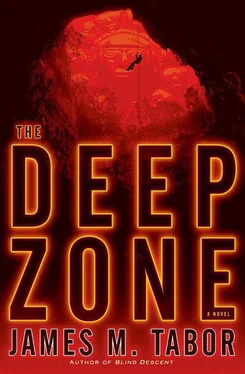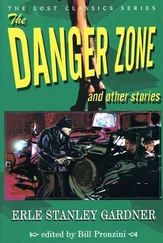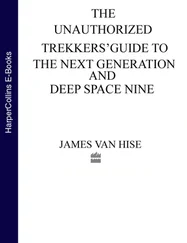“Dishes and laundry.”
She watched him, saw a flicker of something like amusement.
At the same time, Haight laughed out loud. Cahner chuckled, and Arguello said nothing. Whatever had been in Bowman’s eyes was as quickly gone. Not a man to have mad at you , she thought.
BEFORE LATHROP COULD SPEAK AGAIN, A CELLPHONE BUZZED in his pocket. He retrieved it, turned away. “Yes, sir. Yes, sir. I understand. Yes, sir. Immediately, sir.” He closed the phone, turned back to them. “Sorry. My boss.”
Lathrop hooked thumbs in his vest pockets and took a breath. “Dr. Cahner was introduced earlier, and Dr. Leland knows him. Let’s move on. All of you know some of why you’re here, but none of you know all.” Lathrop related the background that Hallie had already heard from Barnard. At the end, he repeated the president’s comment about Pearl Harbor.
“Long story short, we need to kill this germ before it kills our military. Whatever your political persuasions, visualize the United States of America without armed forces. Fresh meat for the animals of the world. Al Qaeda would be in every city in a month, with the Taliban right on their heels. And those are just the obvious ones.”
And not just us , Hallie thought. A new kind of domino theory. Take down America and the others go, plunk-plunk-plunk. A world where men behead a woman for flashing an ankle .
“Now about you. The five of you were distilled from a database of hundreds of thousands. Parameters included security clearance potential, fitness and health, unique skill sets, and a couple of other things. Think of yourselves as the only keys for a very complex lock.”
He paused, looked at Barnard. “That’s enough from me. Don?”
Barnard pushed off the wall he had been leaning against. “Let’s back up a bit. The media has talked about ‘supergerms’ in the past, but that’s wrong. They were bugs with acquired resistance, but bugs we knew. ACE, however, really is a supergerm. An entirely new species.
“Something called antigenic shift is probably responsible. Antigenic drift accounts for most evolutionary changes, but it works over eons. Antigenic shift can happen in weeks or days. Or even seconds, at the microscopic level. Viruses and bacteria have a special gift for it. Antigenic shifts caused the influenza pandemics of 1918, 1957, and 1968.
“We all knew this was coming. We just didn’t know when. To kill a superbacterium, you need a superantibiotic. My section in BARDA had been pursuing one in Dr. Cahner’s lab. He can tell you himself. Al?”
Cahner squirmed, ran a hand over thinning hair. “I, ah, well… maybe we should let Hallie—I mean Dr. Leland—explain. It was her work originally, and I, ah, just…” Cahner looked with desperation at Hallie, who knew how much he hated being in any spotlight, no matter how small.
She glanced at Barnard “Don?”
“Go ahead, Hallie.”
She swigged strong coffee, then began: “Two years ago I accompanied an expedition to a remote cave called Cueva de Luz, in southern Mexico. It’s a supercave, one of the deepest on earth. Maybe the deepest. No one knows for sure. The team included two hydrogeologists, a paleontologist, and me. Five thousand feet deep and four miles into this cave, I found a unique extremophile.”
“Cueva de Luz means ‘Cave of Light,’ ” Haight said. “Why is it called that? There’s no light in any caves I’ve ever seen.”
“I don’t know.” Hallie shrugged. “Maybe Dr. Arguello knows.”
Arguello did not respond immediately. He seemed slightly uncomfortable with all eyes on him. He opened his mouth to speak, then held up his hands, shrugging. “It is not certain.” He knows more than he’s telling us , Hallie thought.
“Dr. Leland—” Lathrop said, to get things back on track. But Arguello was not finished. He had a question: “Wait. I do not understand that term, ‘extremophile.’ ”
Hallie explained: “They survive where nothing should: geo-thermal vents twenty-five thousand feet deep in the ocean, arctic wastes, hyperacidic pools. And in caves. Some persist in absolute darkness for millennia.
“The extremophile I found looked like blue cottage cheese. We called it moonmilk. It was bioluminescent, like some arthropods. Tests revealed genomes we had never seen. Back in the lab one day, I accidentally dropped some onto a tray of petri dishes where we were growing DRTB—drug-resistant tuberculosis—colonies. Level Four biosafety suits are not conducive to fine motor tasks.
“We thought, What the hell, let’s see what happens. The cultures looked like dried splotches of red-and-green vomit. After six hours, little white spots appeared. Three more days and the dishes were white. The DRTB was killed.
“You could spend ten careers and never see something like that. I damn near fainted, let me tell you. So this stuff was right on the outer edge of our science. Definitely from the Archaea domain, but like nothing we’d seen before. We tried it on other DRs. Killed every one.”
“So why are we not giving this… this moonmilk to those soldiers right now?” Arguello sounded genuinely puzzled.
“Because,” said Wil Bowman, “you can’t give an organism in its raw biological state to humans. That would be like feeding people the mold from which penicillin is made.” He spoke very softly, but with undertones that could be humor or could be threat. It was a voice that caught ears and held them. “Plus, they ran out of biomatter before learning how to replicate it.”
Now, how would he know that? Hallie looked at him more closely. This time, when he returned her curious gaze directly, she actually felt a little twinge in her gut.
“Why don’t y’all just send the troops down there and get some more?” said Haight, looking from Barnard to Lathrop to Casey, not sure who should answer.
For the first time, sleek Lathrop looked uneasy. He cleared his throat. “It’s quite complicated, actually. But here’s the situation. Narcotraficantes now control eastern Oaxaca, which includes Cueva de Luz. They are well organized, well armed, and savage beyond belief.”
Arguello gripped the table, his face darkening with anger. “ And they perpetrate the most horrible atrocities against Cuicatecs, my own people .”
This Hallie had not known. Before, the region had been idyllic, high mountain forest dotted with white villages overlooking steep-sided, green river valleys. The Cuicatecs she’d met had been reserved but not hostile, always ready to gamble with homemade dice and share their ferocious sugarcane moonshine called aguardiente .
“There is more.” Lathrop rubbed his forehead, stared at his fingernails. He half-turned to look at Barnard, who nodded. When he turned around again, his suit jacket moved aside just enough for Hallie to glimpse the butt of a semiautomatic pistol in a brown leather shoulder holster. That surprised her, but only a little. She knew the joke about the CIA being an employment agency for Skull and Bones, so a Yalie with a gun was not out of the realm of possibility.
“Mexico’s army has gone after the narcos . It is war down there, unconstrained by niceties like Geneva conventions. The Cuicatecs, feeling invaded, are killing narcos and Mexican troops both. A total nightmare.”
“More reason to send in troops, don’t y’all think?” said Haight.
“Illegal-alien issues have strained our relations with Mexico to the breaking point. The demonstrations, riots, both here and there—you’ve all heard. Just now, we could not possibly insert military assets into their sovereign territory. Especially with their own military concentrated in the area.”
Читать дальше












